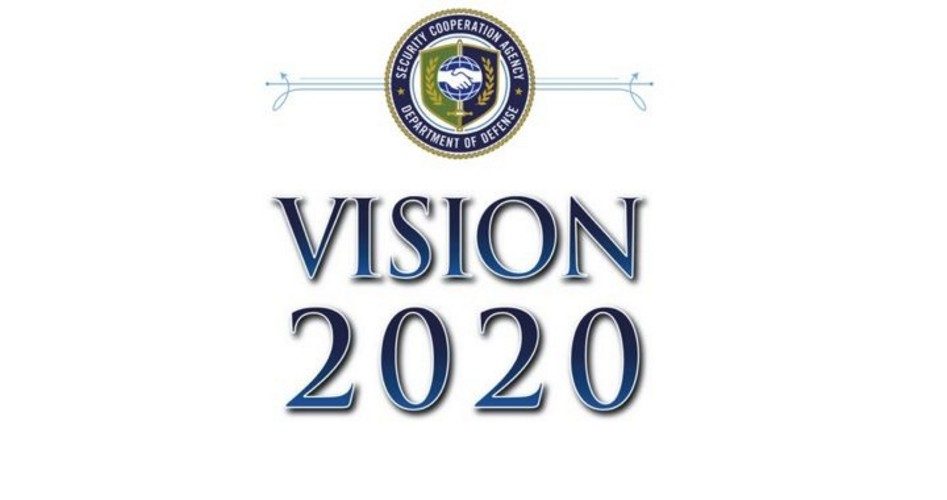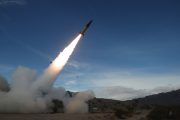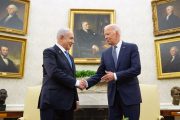
In a policy memorandum published this month, the Council on Foreign Relations (CFR) has called for increasing importance to be placed by the U.S. Department of Defense on the financing, training, and equipping of foreign armed forces.
While praising a Pentagon program called the International Military Education and Training Program (IMET), the CFR laments that the program is not being used effectively in “promoting democracy.”
“IMET is designed to help foreign militaries bolster their relationships with the United States, learn about U.S. military equipment, improve military professionalism, and instill democratic values in their members,” the CFR writes, describing the purpose of the IMET.
As for the promotion of “democracy,” more on that in a minute. First, a look at what the IMET website lists as its mission. The goals of the IMET are:
• Train future leaders (of foreign militaries)
• Create a better understanding of the United States
• Establish a rapport between US military and the country’s military to build alliances for the future
• Enhance interoperability and Capabilities for Joint Operation
• Focus on Professional Military Education
• Allow Countries to use their National Funds to receive a reduced cost for other DoD education and training
• Provide English Language Training assistance
{modulepos inner_text_ad}
The means of accomplishing these ends are also highlighted. Included in the list are the following activities:
• Foreign military sales (this program authorizes the president to “sell articles and services to foreign countries and international organizations”)
• Foreign military financing (this authorizes the president of the United States to finance procurement of defense articles and services for foreign countries and international organizations)
• Granting of excess Pentagon materiel (including transfer of U.S. military equipment to “international organizations”)
• Humanitarian assistance (including disaster, relief, and mine removal)
• Education and training
• Defense institution building (authorizes the Pentagon to establish responsible defense governance)
How many Americans are aware of the fact that their tax dollars — the money they earn from working — are being spent by the federal government to spread democracy, sell military equipment to international organizations, finance the purchase of military equipment by international organizations, train foreign military leaders, and establish pro-U.S. defense ministries in foreign countries?
If they are aware, how many Americans would approve of paying for these foreign aid programs while many of them struggle to make ends meet?
As for democracy, this is not a concept that the United States should be exporting, as it should not be one of our domestically grown products!
In this as most other areas, the wisdom of the Founding Fathers exceeds our own and illuminates the dangers of democracy:
“We are a Republic. Real Liberty is never found in despotism or in the extremes of Democracy.” — Alexander Hamilton
“A simple democracy is the devil’s own government.” — Benjamin Rush
“A democracy is a volcano, which conceals the fiery materials of its own destruction. These will produce an eruption, and carry desolation in their way.” — Fisher Ames
“Democracy is the most vile form of government…. Democracies have ever been spectacles of turbulence and contention; have ever been found incompatible with personal security or the rights of property: and have in general been as short in their lives as the have been violent in their deaths.” — James Madison
I think that is clear enough. The danger of democracy is that as the political winds shift with the changing of the political seasons, the identity of allies and foes will change, too, leaving the United States in the position of supplying weapons to one “international organization” whose aims temporarily align with our own, only to have those very weapons turned on American soldiers when the formerly “democratic” element in a country becomes despotic or, to use a more contemporary word, “radical.”
In a speech made in 2002, former congressman Ron Paul identified how dumb and dangerous it is for the U.S. military to go intervening with their global counterparts. Paul explained:
We’ve reached the point where virtually everyone in Congress, the administration, and the media blindly accepts that America must become involved (financially and militarily) in every conflict around the globe. To even suggest otherwise in today’s political climate is to be accused of “aiding terrorists.” It’s particularly ironic that so many conservatives in America, who normally adopt an “America first” position, cannot see the obvious harm that results from our being dragged time and time again into an intractable and endless Middle East war. The empty justification is always that America is the global superpower, and thus has no choice but to police the world.
He added, invoking the words of some of our first federal executives:
The Founding Fathers saw it otherwise. Jefferson summed up the noninterventionist foreign policy position perfectly in his 1801 inaugural address: “Peace, commerce, and honest friendship with all nations – entangling alliances with none.” How many times have we all heard these wise words without taking them to heart? How many champion Jefferson and the Constitution, but conveniently ignore both when it comes to American foreign policy? Washington similarly urged that the US must “Act for ourselves and not for others,” by forming an “American character wholly free of foreign attachments.” Since so many on Capitol Hill apparently now believe Washington was wrong, they should at least have the intellectual honesty to admit it next time his name is being celebrated.
Americans committed to restoring the economic and political liberty once protected by the Constitution must demand that their elected representatives adhere to their oaths of office and immediately cut off all aid to foreign armed forces and international organizations.
The Constitution defines the entire scope of power granted by the states and the people to the federal government. Our republican form of government is based upon the consent of the governed and a government of any other sort is illegitimate and is tyrannical.
If, then, Congress and the president take taxpayer funds — and the weapons, vehicles, and technology purchased with those same funds — and give them to foreign groups and generals, they are acting outside of the borders of their legitimate powers and therefore are tyrants whose acts deserve no recognition by the people or the states.
Finally, one of the suggested steps for the federal government’s IMET program by the CFR is to “use IMET more as both a carrot and a stick.” This is later defined as making sure that the money and materiel offered to these organizations are “maintained even if a foreign military has staged a coup, allowing the United States to preserve influence with a coup government.”
If that counsel sounds unbelievable and unlikely to be adopted by the Pentagon, consider what presumptive Democratic Party presidential nominee Hillary Clinton said at a speech in 2009 at the CFR headquarters in New York City: “We get a lot of advice from the Council, so this will mean I won’t have as far to go to be told what we should be doing and how we should think about the future.”
It seems, then, that there is a good chance that the United States will continue taking money plundered from the American people and using it to supply the weapons and training to ersatz allies that will one day be used to kill our own troops.



